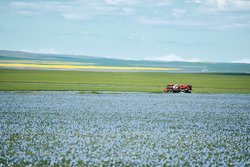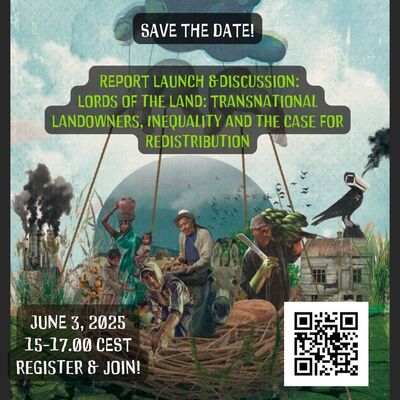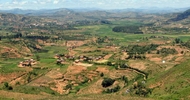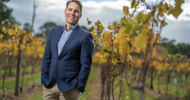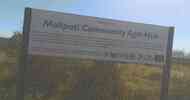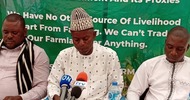The Western Producer | August 6, 2020
Land ownership questioned
By Ed White
An alternative asset value expert acknowledges that many producers think they need to own the land they farm to be secure, but he argues that they should reconsider that because operating a farm is getting more capital-intensive, which is hard to balance with major investments in farmland.
Farmers are complicating and confusing their focus by owning most of their farmland, says a farmland investment adviser.
That misfocus is also robbing them of capital they could be using to farm better.
“Let’s focus on being really good operators,” said Scott McEwen, a Toronto alternative asset value expert.
“You aren’t necessarily the best asset owner.”
McEwen thinks there are large pools of investment capital that want to own Canadian farmland, but are now mostly blocked from doing so.
That money could help farmers turn their land into capital, keep them farming and provide a better farming business.
Many farms now are land-rich but cash poor, which stops many producers from modernizing and maximizing efficiency.
“You think your future is connected to that asset ownership, but that asset ownership sometimes precludes your ability to attract investment or have free cash flow so you can invest,” said McEwen.
Some countries have loose land ownership laws, allowing non-farmer, non-provincial and foreign ownership. Some of those conditions apply in countries like New Zealand, Australia and those in South America.
That has given some farmers the chance to break from the tight connection between land ownership and farm size and structure that dominates Canadian agriculture, McEwen said.
In Canada, many provinces restrict ownership to Canadian individuals, or provincial citizens in some cases.
Traditionally, Canadian farmers and the Canadian public has been opposed to outside ownership of farmland, but McEwen said Canada needs to change that if it wants a modern, growth-based agriculture sector.
Pouring money into land purchases, which farmers often do whenever they can afford to do it, takes investment capital and dumps it all in one place, plus removes that investment capital from a farmer’s options in improving his farming operations, McEwen said.
A number of Canadian companies are now investing in farmland where it’s possible, as in Ontario, but it is far less common than in the United States, where farmland sales face fewer restrictions.
Some of the owners outside Canada include pension plans, private equity and sovereign wealth funds that are looking to diversify their investments outside the traditional areas of stocks and bonds. Especially with the volatility of the past 15 years, long-term investors are looking to flatten the volatility from their portfolios.
“Farmland investment is non-correlated with the stock market,” said McEwen, a long-time member of the National Council of Real Estate Investment Fiduciaries.
Generally, those investors have little interest in running any farming operations, but merely want to own the land and earn a return through rent, leasebacks and other forms of passive investing. They tend to make long-term agreements with farmers, which generally helps both sides with business planning.
McEwen said he knows many farmers bristle at the idea of non-farmer ownership of land, and that farmers think they need to own the land they farm to be secure, but he thinks they should reconsider that because operating a farm is getting more capital-intensive and that is hard to balance with major investments in farmland.
“Sometimes it impacts your balance sheet. It impacts your ability to invest in how you actually make money,” said McEwen.
“If you want to lead the world, you need capital to build.”
Land ownership questioned
By Ed White
An alternative asset value expert acknowledges that many producers think they need to own the land they farm to be secure, but he argues that they should reconsider that because operating a farm is getting more capital-intensive, which is hard to balance with major investments in farmland.
Farmers are complicating and confusing their focus by owning most of their farmland, says a farmland investment adviser.
That misfocus is also robbing them of capital they could be using to farm better.
“Let’s focus on being really good operators,” said Scott McEwen, a Toronto alternative asset value expert.
“You aren’t necessarily the best asset owner.”
McEwen thinks there are large pools of investment capital that want to own Canadian farmland, but are now mostly blocked from doing so.
That money could help farmers turn their land into capital, keep them farming and provide a better farming business.
Many farms now are land-rich but cash poor, which stops many producers from modernizing and maximizing efficiency.
“You think your future is connected to that asset ownership, but that asset ownership sometimes precludes your ability to attract investment or have free cash flow so you can invest,” said McEwen.
Some countries have loose land ownership laws, allowing non-farmer, non-provincial and foreign ownership. Some of those conditions apply in countries like New Zealand, Australia and those in South America.
That has given some farmers the chance to break from the tight connection between land ownership and farm size and structure that dominates Canadian agriculture, McEwen said.
In Canada, many provinces restrict ownership to Canadian individuals, or provincial citizens in some cases.
Traditionally, Canadian farmers and the Canadian public has been opposed to outside ownership of farmland, but McEwen said Canada needs to change that if it wants a modern, growth-based agriculture sector.
Pouring money into land purchases, which farmers often do whenever they can afford to do it, takes investment capital and dumps it all in one place, plus removes that investment capital from a farmer’s options in improving his farming operations, McEwen said.
A number of Canadian companies are now investing in farmland where it’s possible, as in Ontario, but it is far less common than in the United States, where farmland sales face fewer restrictions.
Some of the owners outside Canada include pension plans, private equity and sovereign wealth funds that are looking to diversify their investments outside the traditional areas of stocks and bonds. Especially with the volatility of the past 15 years, long-term investors are looking to flatten the volatility from their portfolios.
“Farmland investment is non-correlated with the stock market,” said McEwen, a long-time member of the National Council of Real Estate Investment Fiduciaries.
Generally, those investors have little interest in running any farming operations, but merely want to own the land and earn a return through rent, leasebacks and other forms of passive investing. They tend to make long-term agreements with farmers, which generally helps both sides with business planning.
McEwen said he knows many farmers bristle at the idea of non-farmer ownership of land, and that farmers think they need to own the land they farm to be secure, but he thinks they should reconsider that because operating a farm is getting more capital-intensive and that is hard to balance with major investments in farmland.
“Sometimes it impacts your balance sheet. It impacts your ability to invest in how you actually make money,” said McEwen.
“If you want to lead the world, you need capital to build.”


